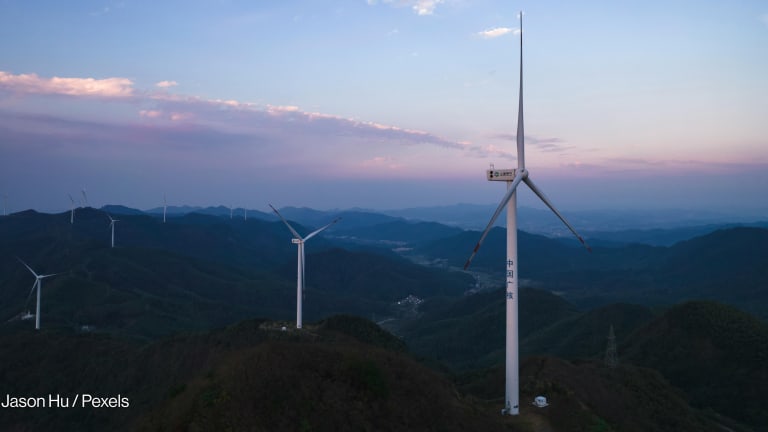
Seven years after announcing plans for the region’s full integration and liberalization, the Association of Southeast Asian Nations needs more time and effort to achieve what it calls an “economic community” — a goal originally set in 2015.
So what’s to blame? According to Jayant Menon, regional economic integration lead at the Manila-based Asian Development Bank, a mixture of policy implementation delays, non-alignment of domestic and regional interests, as well as the overall development disparity — or gap — between the nations in the region.
Additionally, some countries are still struggling to cope in terms of financial as well as technical capabilities in carrying out some of the regional measures that further slow down the process.
“There have been delays in the ratification of signed agreements and their alignment with national domestic laws and delays in the implementation of specific initiatives,” Menon told Devex. “Dec. 31, 2015 will not see a full ASEAN liberalization as one would see in Europe.”
He added that some countries “lack the technical, regulatory, or financial capability to fully implement or adopt some of the measures,” underlining the kind of development gap that exists between countries in the region such as ultra-modern Singapore or deeply impoverished Laos.
The goal of an ASEAN Economic Community was adopted by the bloc’s 10 member states in 2007 to promote a harmonized region, achieving economic development by together focusing on 4 key areas: having a single market and production base, establishing a competitive economic region, ensuring that economic development is equitable, and making sure that the region is integrated with the global economy.
Major strides have been made in recent years, with policies to tackle tariff barriers more-or-less already in place, including a regional single window that streamlines customs and business processes.
But much more needs to be done.
Menon said that the latest assessment on the process showed that the region has only reached about 68 percent of its targets. The economist explained that “there is still some way to go” and that the integration and liberalization goal is a “long process that will continue beyond 2015,” with 2025 as a more likely new target deadline.
“We should see 2015 as a milestone for the AEC, not a destination,” Menon noted. “Some see 2025 as a more realistic target … with a stock take in 2020.”
Challenges and potential solutions
One of the biggest challenges that make the economic community goal a steep mountain to climb is the willingness and effort of national governments to realign policies that can pose a potential bottleneck in the integration process at the implementation stage, according to Menon.
“The greatest challenge in realizing the AEC will occur at the implementation stage. Countries may have to realign national policies or get accords ratified by their parliaments,” he said, adding that not resolving this issue may render all previous efforts wasted.
This is of particular interest as several countries in the region remain transitional democracies, which may pose difficulties in passing and implementing such policies effectively. Member states including Myanmar — despite being considered a donor darling of late — and Cambodia still face the threat of civil unrest, with governments struggling to find common ground in pushing through development reforms.
So how can actors make sure that ASEAN can meet its targets, whether by 2020 or 2025? The region should address the following roadblocks:
1. Eliminate non-tariff barriers, including anti-dumping activities and sanitary regulations.
2. Strengthen food security and cooperation in the sectors of agriculture and forestry.
3. Adopt trade facilitation measures that reduce costs, especially for member states with insufficient financial and technical capabilities.
4. Strengthen and improve investment policies, the business climate and capital mobility of member states so money can flow freely across borders.
Another issue that could potentially be a stumbling block in this planned integration and liberalization of the ASEAN region concerns the territorial disputes of several member states with China in the South China Sea. Despite being a political issue, the row is said to be creating a divide between members of the regional bloc that could hamper progress.
Steps ahead
Aside from national governments implementing supporting policies, Menon also highlighted the vital role of the international aid and development community in the integration process.
“There are many areas in which the international community can help. Improving connectivity — through building cross-border highways, railways and sea links, as well as telecommunications — can all help,” he said. “Helping to ease cross border movement in goods, capital, and people is also important.”
The ADB economist added that tackling wider development issues should also be on the agenda of the regional bloc moving forward, including climate change, disease prevention, disaster mitigation and good governance.
“We [also] need to work to ensure that contagion risks are mitigated through the creation multilateral structures [while] strengthening domestic financial systems [and] institutions that support integration,” Menon concluded.
Read more development aid news online, and subscribe to The Development Newswire to receive top international development headlines from the world’s leading donors, news sources and opinion leaders — emailed to you FREE every business day.








